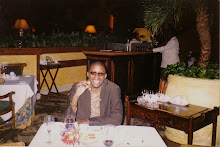
By Alan Gomez, USA TODAY
MIAMI — On a typically hot afternoon in his South Florida office, Jorge Padron casually puffs on a cigar that bears his family's name. The company has been growing steadily for decades, ever since his father, Jose Padron, founded it in Little Havana in 1964.
Padron and other cigar companies say their legacy of good jobs for unskilled workers and fine smokes for aficionados is imperiled not just by the recession. The rise in smoking bans across the country and a unprecedented hike in taxes on tobacco are proving to be crippling.

"The industry is suffering. A lot," Jorge Padron said.
The biggest casualty so far has been the Hav-a-Tampa plant in Tampa, which will shut down in the coming months and began laying off its nearly 500 employees last week. Norman Sharp, president of the Cigar Association of America, said other companies are laying off workers and cutting back.
FIND MORE STORIES IN: Florida | Tampa | Fidel Castro | Havana | Winston Churchill | Red Auerbach | Karl Marx | George Burns | Altadis
"I can't even use the word cautiously optimistic," Sharp said. "These are dark, dark days."
Sales decline
Cigars have long held a sacred place in American history. They're handed out when babies are born and at wedding receptions. They helped shape the identity of American legends such as Groucho Marx and George Burns, American allies such as Winston Churchill and even American foes such as Fidel Castro. Hall of Fame basketball coach Red Auerbach would pull one out as a victory was nearing, turning them into the ultimate sign of achievement.

Now, smoking is banned in workplaces, restaurants or bars in more than 17,000 cities across the country, according to the American Nonsmokers' Rights Foundation. Meanwhile, about 100 bills have been filed this year in at least 34 state capitals that could increase tobacco taxes even more, according to Dan Carr, chief operating officer of General Cigar.
That's not necessarily bad news to some. Thomas Glynn, director of cancer science and trends for the American Cancer Society, said cigars don't cause as much lung cancer as cigarettes since they're usually not inhaled. But cigar smokers are just as likely as cigarette smokers to develop cancers in the mouth, lip and upper digestive tract.
While there are no reliable data on cigars sold in the USA, Carr said their industrywide analysis shows that people are either buying fewer cigars or cutting them out entirely. An estimate by the company, which sells about 30% of the cigars consumed in the USA, found that sales are down between 10% to 15% in the past year.
One reason for that is taxes, some say, which have skyrocketed.
On April 1, the federal excise tax on cigars increased from 5 cents to about 40 cents on large cigars. At least 12 states have passed tobacco tax increases also, and 25 more states are considering them, according to the National Conference of State Legislatures.
Rich Perelman, editor of Cigarcyclopedia.com, said small cigars have been hit hardest. They are made to sell cheap but got hit with a nearly $1-per-pack tax increase. Premium cigars that sell for $20, $30 aren't affected nearly as much by the tax hike, he said.
At Flor de Gonzalez Cigars in Miami, their tax bill per shipment has gone from less than $5,000 per 100,000 cigars to more than $40,000.
Yadi Gonzalez, president of the family-owned operation that still rolls many of their specialty cigars by hand, said that has forced them to reduce some salaries. She worries about what will happen if governments continue using cigars as an easy source of income.
"They don't realize that at the end of the day, if we start losing jobs, and imports begin to drop, they're not going to accomplish their bottom line, which is to collect these taxes," Gonzalez said.
The weight of those taxes is solely to blame for the closure of the Hav-a-Tampa plant, said Richard McKenzie, a senior vice president of human resources for Altadis USA, which owns Hav-a-Tampa.
On Friday, the plant began laying off nearly 500 people. McKenzie said most of the factory workers made between $8 and $12 an hour with health insurance, a pension plan and a 401(k), better than most jobs for unskilled labor.
Carr, whose General Cigar company employs more than 6,000 people around the world, said his company hasn't had to fire anybody. Even so, he would not rule out the possibility of layoffs if their situation continues on its downward slide.
'This is an art'
Carr said layoffs would be devastating not just to the industry, but to the unskilled workers who have benefited from the well-paying jobs for decades. Unlike workers who man machines in cigarette plants, crafting a cigar is a delicate process that has been passed down through generations.
"This is an art, what we do," Carr said.
The industry will probably not see a slowing down of the movement to snip away at the places where people can puff, however. From Los Angeles to Washington, D.C., government agencies are banning smoking in restaurants, bars and even parks.
Anti-smoking advocates see little difference between cigarettes and cigars. Perelman does. People don't rush outside to quickly inhale a cigar, he says.
"They're consumed in a much different way," he said. "I have never met a person who is addicted to cigars. Never. Cigars are a quiet, reliable place in their life where they can relax and think about the world as it goes by."




No comments:
Post a Comment